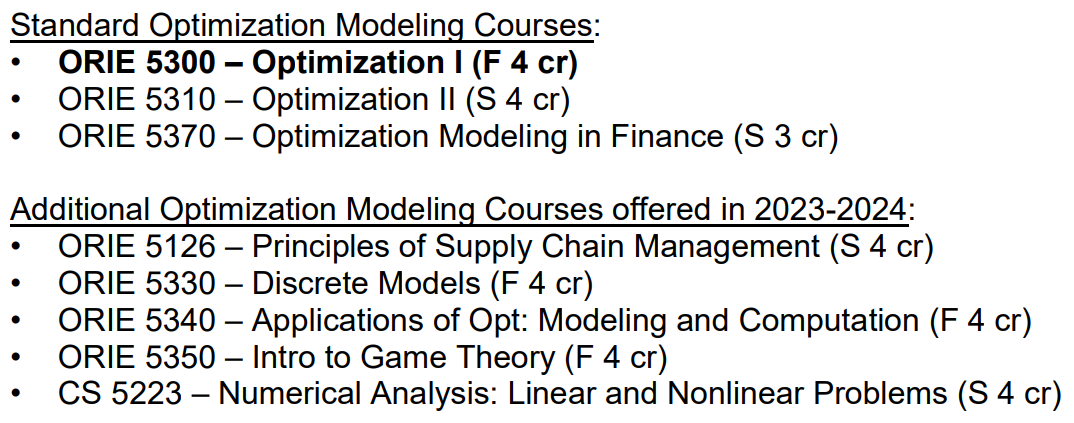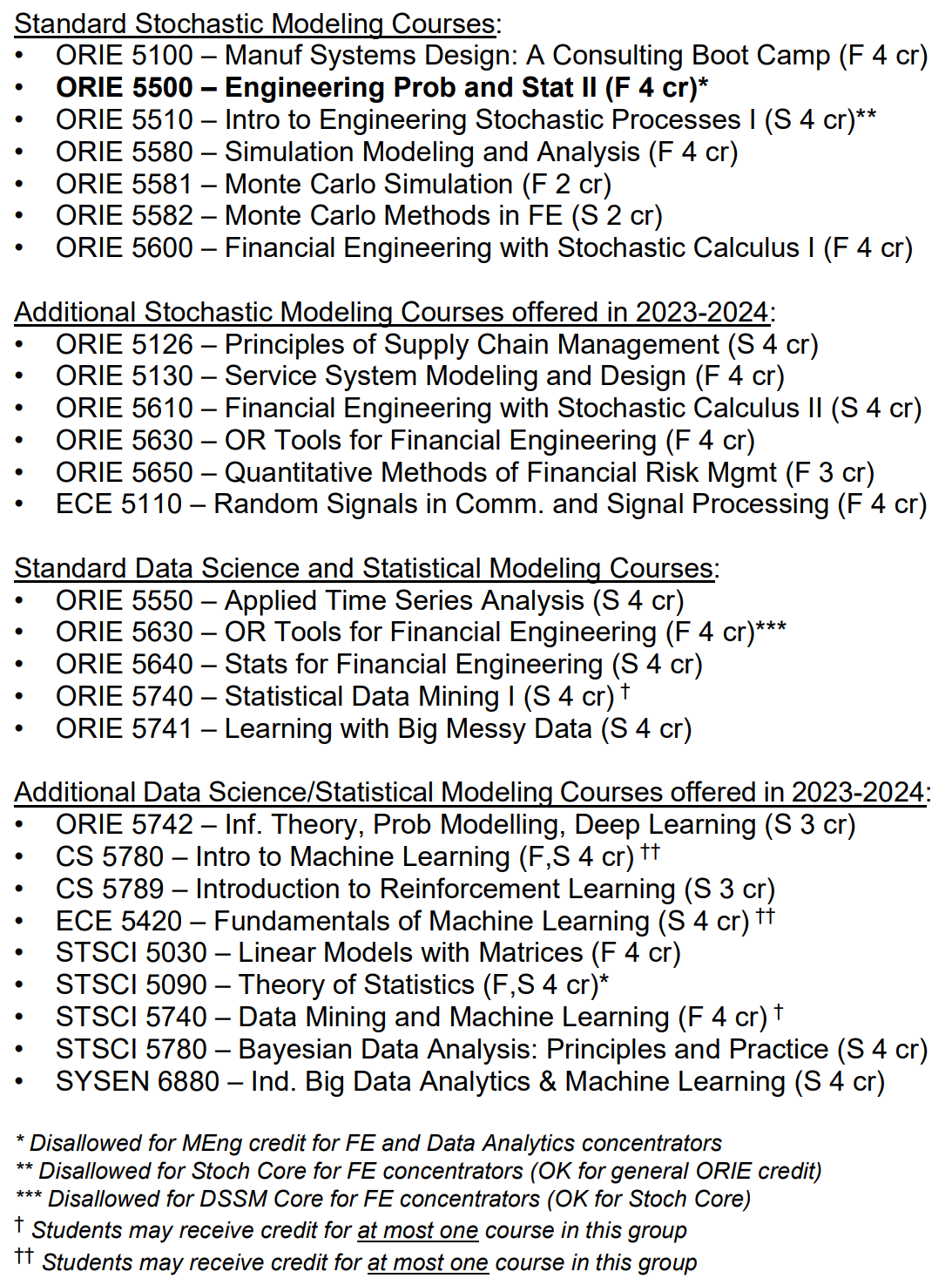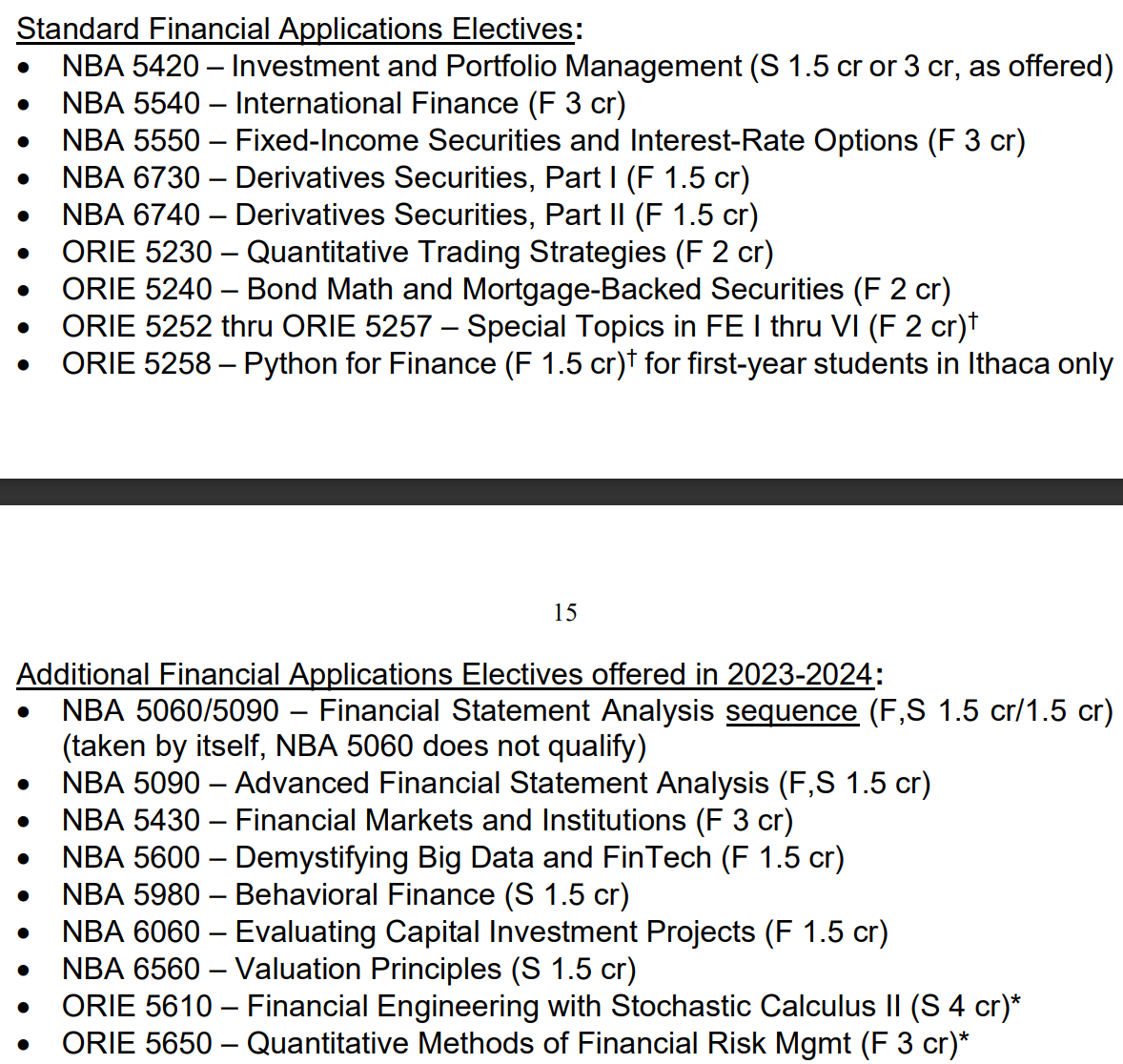Key takeaways
- 3 semesters program
- Study in two campus, Ithaca and NYC
Program
3-semester model
All students begin their studies on our scenic Ithaca campus, and they will complete their studies at Cornell Financial Engineering Manhattan in the heart of New York City.
Deadline: December for fall semester, September for spring semester
Fee
Per semester: $32,602
Per year: $65,204
Prerequisites/requirements
- resume
- transcripts
- Video Interview
Prerequisites
- A standard engineering calculus sequence, including linear algebra (with eigenvalues and eigenvectors), and vector calculus, similar in content and rigor to Cornell courses MATH 1910, MATH 1920, and MATH 2940.
- An introductory engineering probability and statistics course similar in content and rigor to Cornell course ENGRD 2700.
- An intermediate-level computer programming course in a general programming language such as C, C++, Java, or Python, similar in content and rigor to Cornell course ENGRD 2110. Courses that entail programming applications, but where programming is not the primary focus are not acceptable substitutes. Courses in statistical modeling languages, such as R and SAS, are not acceptable substitutes.
Additional prerequisites for the Financial Engineering concentration (must be satisfied prior to matriculation):
- Two semesters of calculus-based probability, statistics, and/or stochastic processes, similar in content and rigor to Cornell courses ENGRD 2700, ORIE 3500 and/or ORIE 3510. Courses in which probability and statistical methods are used, but where theory is not the primary focus are not acceptable substitutes, nor are professional exam credentials (e.g., CFA, FRM).
- An introductory finance course. Courses in economics and accounting are not acceptable substitutes.
- Strongly recommended: A course in differential equations, similar in content and rigor to Cornell course MATH 2930.
- Strongly recommended: Proficiency with R and/or Python.
Additional prerequisites for the Data Analytics concentration (must be satisfied prior to matriculation):
- A two-semester sequence of calculus-based probability and statistics theory, similar in content and rigor to Cornell courses ENGRD 2700 and ORIE 3500. Courses in which probability and statistical methods are used, but where theory is not the primary focus are not acceptable substitutes, nor are professional exam credentials (e.g., CFA, FRM).
Letters of Recommendation
Any letters from professional references should specifically describe your accomplishments.
Academic Statement of Purpose (≤1000 words)
This should describe your objectives in pursuing the Master of Engineering (M.Eng) degree program in ORIE. Please state specific reasons why you wish to be considered for your first-choice concentration. Please highlight any unique contributions you would make to the intellectual diversity of the class, including approaches to problem solving, points of view, skill sets, regional knowledge, understanding of professional work cultures, and/or lessons learned.
This statement should be forward-looking.
Personal Statement (≤1000 words)
This should describe your personal journey and the influence it has had on your decision to pursue an M.Eng degree in ORIE, and how it has prepared you to contribute to Cornell’s collaborative problem-solving environment. It is an opportunity to highlight any lived experiences or interactions - including successes, failures, conflicts, injustices, or journeys of self-discovery - that have significantly shaped or serve to demonstrate your problem solving, communication, collaboration and teamwork, leadership, maturity and self awareness, endurance, and/or resilience.
This statement should be reflective.
Graduate Record Examination (GRE)/Graduate Management Admission Test (GMAT)
The GRE and/or GMAT will be optional for the Fall 2024 application season, reversing a prior decision to require them.
While we accept both, we prefer the GRE.
Have scores delivered electronically to Cornell University Graduate School, Institution code 2098.
TOEFL/IELTS Requirements
ORIE specifically requires a minimum total TOEFL score of 100 for any applicant who doesn’t receive an exemption.
Curriculum
Structured to offer a flexible curriculum, Cornell MFE allows students to focus on a career track of their choice. Some of the most popular career tracks include:
- Trading
- Quantitative Portfolio Management
- Financial Data Science/Fintech
- Financial Risk Management




